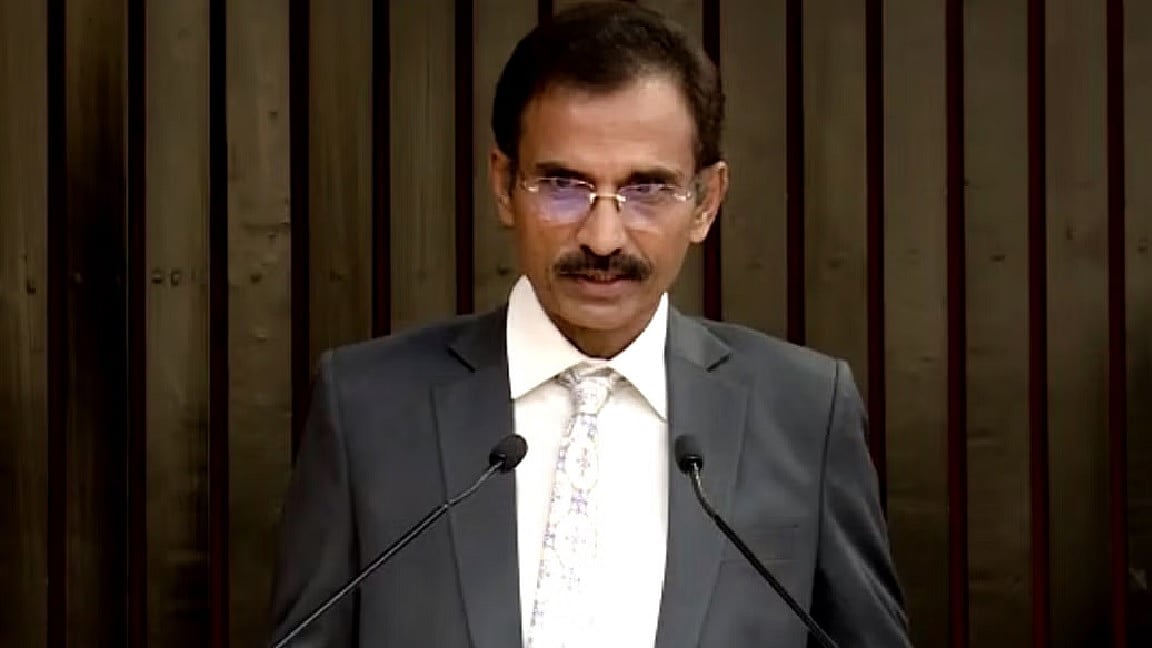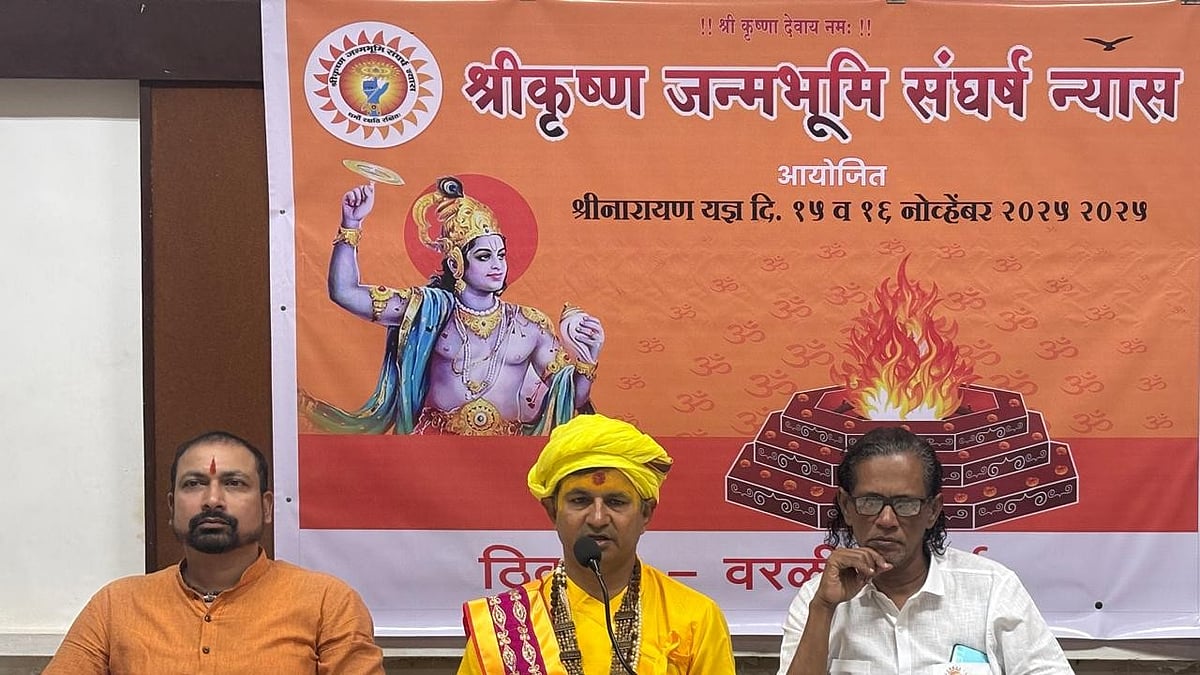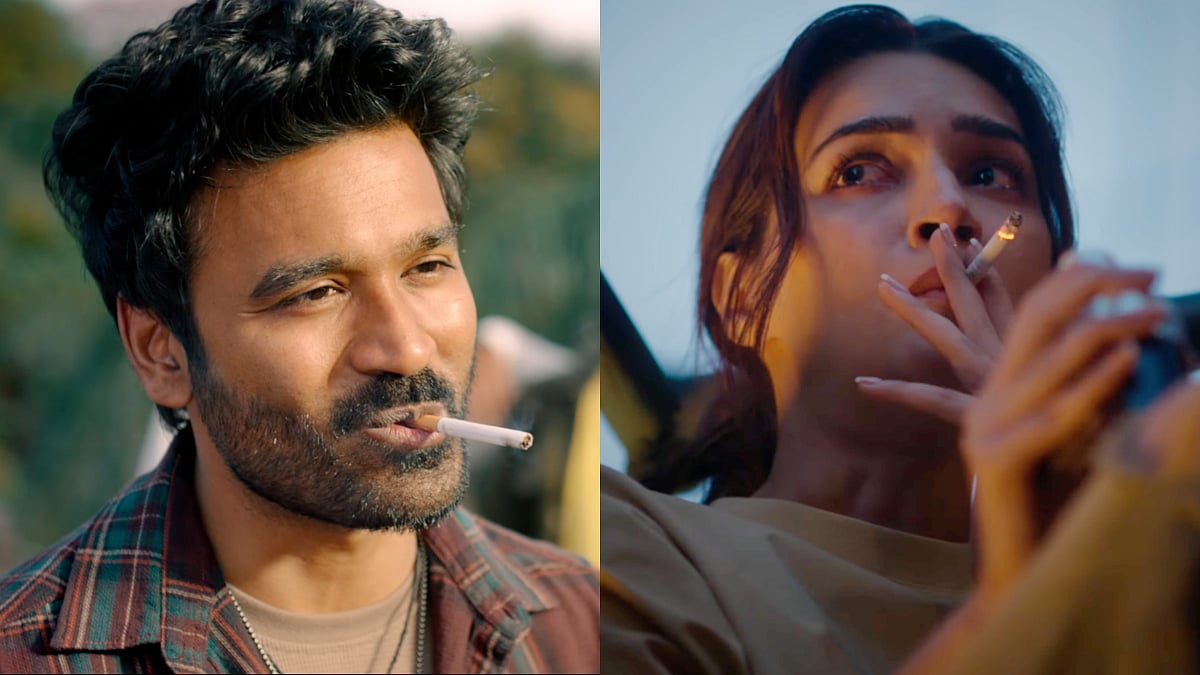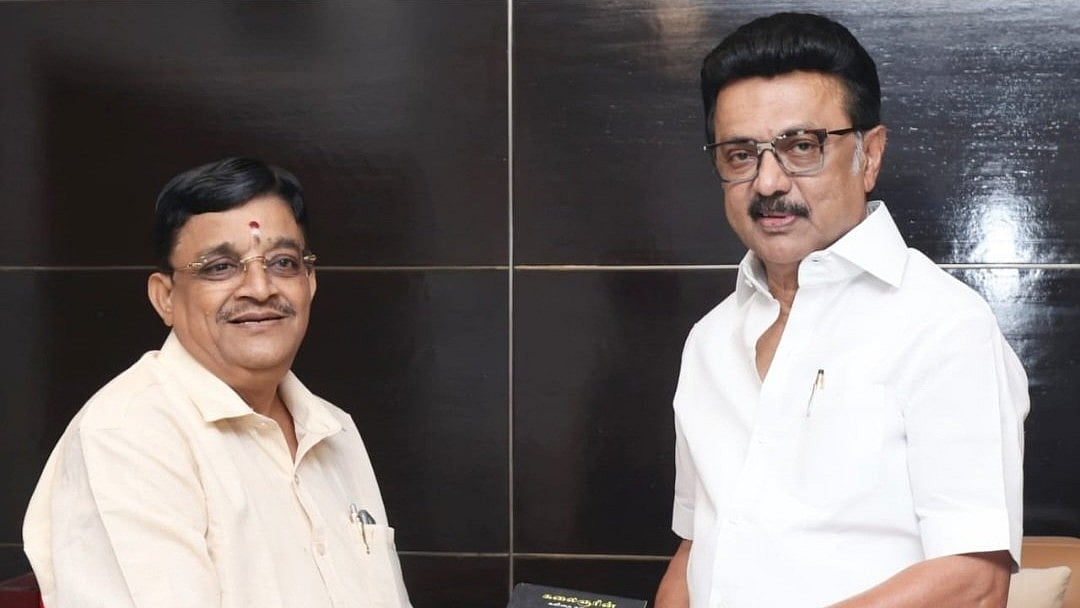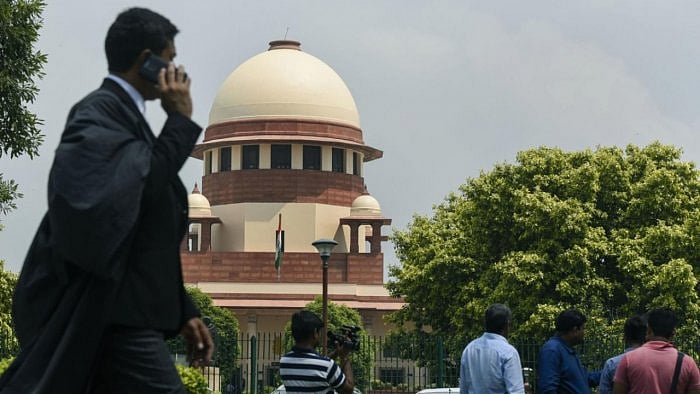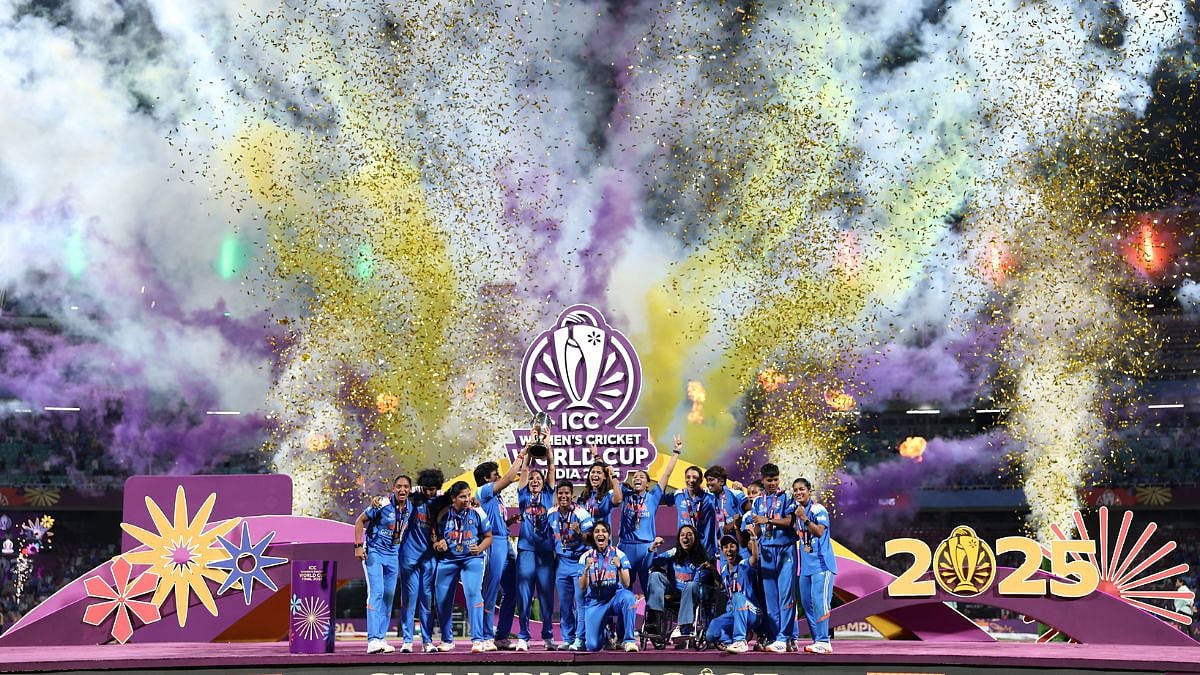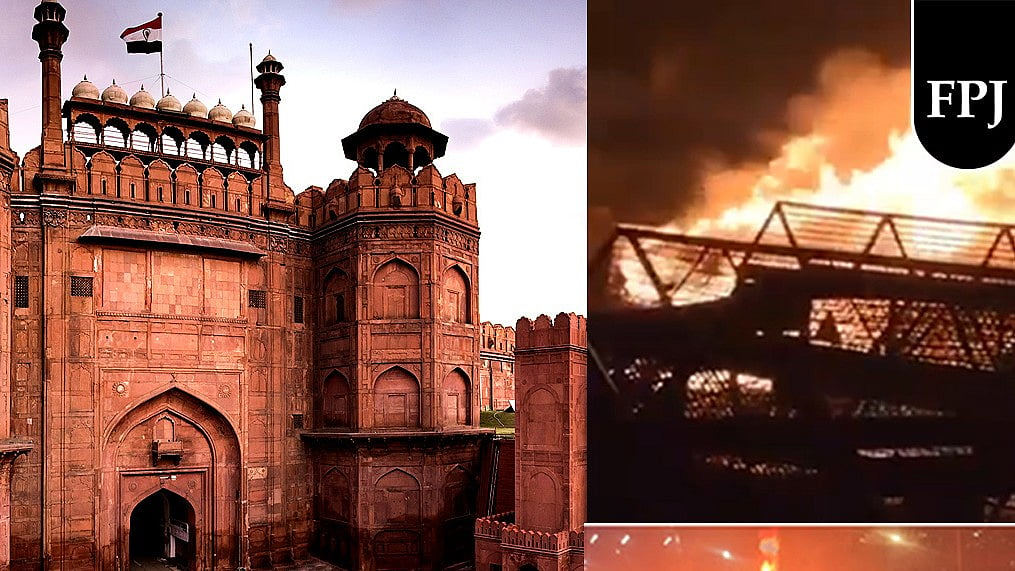Good advocates—like good judges-- are good actors because if they reveal what is deep inside their minds, their cases will unwind. A Supreme Court judge candidly admitted this during his retirement function on May 20 when the advocates paid their customary fawning tributes to him at his retirement function. The judge in question was Justice L. Nageswara Rao, who is of the same age, hails from the very same Andhra Pradesh as Chief Justice of India N.V. Ramana, and speaks English with the same accent.
During Justice Rao’s farewell function organised by the Supreme Court Bar Association, senior advocate Pradeep Rai revealed, "Justice Rao has a multi-faceted personality. Apart from being a good cricketer, he acted in many films as a police inspector. He even acted in TV serials. He acted in the movie Kanoon Apna Apna in which he acted alongside Kader Khan and Sanjay Dutt." One is left guessing as to how well Justice Rao knew Sanjay Dutt and whether the latter ever thought of approaching him for advice on his drugs-related case before Justice Rao was elevated to the judiciary.
For the uninitiated, Justice Rao looks a wee bit like a Bollywood actor, with long hair curling at the nape of his neck. He was elevated as a Supreme Court judge directly from the bar instead of the customary route of first becoming an advocate general, then being elevated as a high court judge, and transferred as chief justice of two or more high courts before being elevated to the Supreme Court.
Justice Rao was the seventh senior advocate from the bar to be directly elevated to the bench. Reacting to the quip made about his acting talents, Justice Rao divulged: "I was in the theatre when I was in college. My cousin was a director and thereby had a short role in a movie. That's it. I did not want to become an actor. All of you know that lawyers act in court and judges also do…. When there is some heat, we try to bring a truce between the lawyers. Acting is a part of the profession. I sometimes asked the lawyers, are you like this and then I saw both going to the coffee shop together," Justice Rao said.
The judge is right. Good advocates make good judges because they are consummate actors. When an advocate accepts a brief, he has to strive mightily to win the case--whether he believes in his client’s innocence or not. Poor actors make poor advocates because they cannot disguise their facial expressions which may reveal what they are thinking.
And as Justice Rao revealed, “Judges too have to act in courts.” He has hit the nail-on-the-head yet again because judges right from the lowest tribunal in the country right up to the Supreme Court are trained never to reveal their feelings. They are supposed to sit with impassive and stolid faces, not revealing what they are thinking during heated arguments. If they do reveal what they think, the advocate who knows the judgment is going against him may ask for recusal of the judge on the ground that he has come to the court with preconceived notions.
In fact, this is exactly what took place when the Maharashtra advocate general Ashutosh Kumbhakoni who was himself a former Bombay High Court judge, asked for the recusal of Justice Abhay Oka (now in the Supreme Court) from hearing a case pertaining to noise pollution when the law officer alleged the judge was biased against the government. The Devendra Fadnavis government later withdrew all allegations against Justice Oka who was later transferred as Karnataka High Court Chief Justice before being elevated as a Supreme Court judge. He has definitely honed his acting skills since then.
Mohammed Ali Jinnah was probably one of the greatest actors in the Bombay High Court with a very successful law practice. Despite a stellar defence by Jinnah, Justice Dinshaw Davar convicted Tilak whose bust is visible in the high court. In contrast, Mahatma Gandhi had to withdraw from a case because he was too nervous in court and had severe stage fright. He was never a successful lawyer.
The axiom that good actors make good lawyers but not good human beings is illustrated by the late U.S. President Richard Nixon who would practice every gesture before a mirror before he appeared in public, making him artificial to the core, according to Henry Kissinger. The President of India, Ram Nath Kovind was an advocate-on-record of the Supreme Court, and the Vice President of India, M. Venkaiah Naidu, is also an advocate, where he uses his acting skills to control the Rajya Sabha where he is the chairman.
The fact that good lawyers are good actors is proved by the fact that senior advocate in the Supreme Court Gopal Subramaniam withdrew his consent to be elevated as a Supreme Court judge after the NDA government alleged he had links with corporate lobbyist Niira Radia who described him as “very upright.” He resigned as additional solicitor general after the NDA government appointed Rohinton Fali Nariman to represent the government. Nariman went on to become a Supreme Court judge.
Of course, we have some CJIs who are not consummate actors, like the 43rd CJI T.S. Thakur, who broke down and wept like a child before a stolid-faced Prime Minister Narendra Modi on April 25, 2016, because the government was not clearing the files of putative judges. We have also had judges like Justice Arun Mishra whose unabashed admiration for Modi was on public display at an international law conference in February 2020. His son-in-law, Diwakar Nath Misra, a joint secretary in the commerce ministry, had his daughter’s mundan (hair-shaving) ceremony attended by the who’s who of Delhi in his father-in-law, Justice Mishra’s official bungalow.
Like all judges, Justice Mishra is a consummate actor – unlike former chief justice of the Rajasthan High Court Akil Kureshi who was overlooked by the Supreme Court despite being second in seniority in the all India judges seniority list. Like CJI Thakur, he wept at his farewell function by the Rajasthan High Court bar association.
Acting is a skill we learn while appearing in courts and selling ideas to the judge who may buy or reject the idea of guilt or innocence as peddled by senior advocates. Good advocates, like good judges, always remain versatile actors.
(Olav Albuquerque holds a Ph.D in law and is a senior journalist-cum-advocate of the Bombay High Court)
